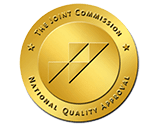For those recovering from alcohol or drug addiction, assistance animals and pets can prove to be an invaluable resource during sobriety. A lifestyle in recovery no longer includes the same friends or places that once shaped your former world. Now, you have to find a new and healthier way of living which may feel isolating at first. Additionally, for those suffering from a co-occurring disorder such as PTSD or anxiety, the added stress of dealing with mental health issues can feel overwhelming at times. Even with these challenges, there are always tools available that can provide assistance, hope, and encouragement, including making new friends, developing healthy social activities, and maybe even getting a pet during addiction recovery.
What are Assistance Animals?
There are different types of assistance animals, including service animals, emotional support animals, and therapy animals, to name a few. Therapy animals are not to be confused with service dogs or emotional support animals as these animals are trained to provide comfort and affection to people in various environments such as hospitals and nursing homes. According to the American Veterinary Medical Association (AVMA), “animal-assisted therapy or animal-assisted activities use animals such as dogs to provide opportunities for motivation, education, or recreation to improve a person’s quality of life.” Sometimes therapy animals, such as dogs, are brought to a facility to help bring patient’s comfort and support. In some rehab centers, clients are brought to animals such as horses to participate in activities to help them during their recovery process.
Service dogs are specially trained animals often used for the benefit of an individual with a disability, including a physical, sensory, psychiatric, intellectual, or other mental disability (Americans with Disabilities Act). People may also purchase an animal as a pet and then register through the National Service Animal Registry for their pet to become a certified emotional support or companion animal – allowing them to take the animal in most public places depending on the state or government laws. For those transitioning back into life from rehab, an emotional support animal or trained service animal may be a great option.
Advantages of Support Animals/Pets During Recovery
During rehab, everything was structured, and support was readily available. Emotional support animals such as dogs or cats can help with the transition back into daily life by offering a similar form of routine, stability, and round-the-clock comfort. The most immediate benefits of pets are companionship and unconditional love. What’s even more impressive according to The National Institutes of Health is that interacting with animals has also been shown to:
- decrease levels of cortisol (a stress-related hormone)
- lower blood pressure
- help manage pain
- teach mindfulness and awareness
- increase feelings of social support, and boost mood
When individuals are in active addiction, their brain is constantly flooded with dopamine, a powerful neurotransmitter associated with feelings of pleasure and reward. After rehab, having a support animal with you wherever you go can naturally increase these feel-good chemicals, boosting a person’s sense of confidence, happiness, and well-being. This bond helps reduce loneliness, stress, and the risk of relapse.
Decreased Feelings of Loneliness
The Preventing Drug Use Among Children and Adolescents Survey, conducted by the National Institute on Drug Abuse (NIDA), found that aggressive behavior and lack of familial supervision or bonding predispose an adolescent to substance use disorder (SUD). Anxiety, depression, and feelings of isolation are other mental health disorders that increase the risk of developing a SUD.
The unconditional love offered by a pet can generate a sense of calmness and reduce loneliness. Dr. Greg Fricchione, director of the Benson-Henry Institute for Mind Body Medicine, contends that humans are happiest when we feel an attachment to other beings. Pets, whether they be mammals like us, reptiles, birds, amphibians, or fish, can offer us a sense of belonging that staves off feelings of isolation.
Animal companionship is linked to an increase in sociability, as well. Once we gain confidence from our BAFs (Best Animal Friends), we feel more capable of forming relationships with humans. Accumulating social capabilities is important for recovery from substance abuse and allows those in recovery to form support groups and build new relationships with people who are not associated with previous drug-related behavior.
Lowered Blood Pressure and Other Bodily Responses
Studies show that petting or playing with a dog or cat can lowers blood pressure, cholesterol, and levels of triglyceride. Hanging out with our pets doesn’t just make us feel good mentally and emotionally–spending some quality time with your animal pal has positive physical effects too!
Increased levels of dopamine, serotonin, and oxytocin, hormones that trigger feelings of happiness and bonding, result from playing with your pet. Levels of cortisol, a hormone related to stress, are reduced when hanging out with your feline or canine friend. A study found that pet owners have a more stable heart rate during stressful situations than non-pet owners.
If you feel that a dog is the right companion for you, you will enjoy the health benefits of regular walking. Dogs require plenty of exercise and they’ll need your help. Frequent aerobic exercise improves cardiovascular health. Long-term substance abuse deteriorates muscle and impedes function of organ systems and improving heart health with your furry friend is a great way to progress in your recovery.
Service Animals and Co-Occurring Disorders
Those with co-occurring disorders such as PTSD, anxiety, or depression can greatly benefit from a service dog. According to Service Dogs for America, dogs are trained to help those dealing with the challenges of mental health disorders, such as PTSD, by:
- Alleviating anxiety/distress by nudging, pawing, and leaning.
- Distracting a person from an event or specific maladaptive behavior by nudging, pawing, and licking.
- Assisting a person in waking from night terrors and nightmares.
- Standing in front of or circle an individual in crowded areas in order to create personal space.
- Leading a person safely to a building exit when experiencing a panic attack.
- Bringing medication to a person on command or when alerted to do so by an alarm.
The organization does stress that a trained service dog is a tool and is not intended to substitute or replace current therapeutic modalities or medication treatment plans. For those suffering from other mental health issues, the Anxiety and Depression Association of America states, “pets and therapy animals can help alleviate stress, anxiety, depression, and feelings of loneliness and social isolation. Interactions with animals can help people manage their long-term mental health conditions.”
Providing Hope
Assistance animals and pets can help those in sobriety focus on developing healthier habits, re-learn responsibility, reduce anxiety, and find a renewed sense of purpose. For those who can not adopt or purchase a pet during the recovery process, volunteering at a local animal shelter can offer similar benefits and help support a great cause at the same time. Adding beneficial tools such as a service animal or pet can improve your quality of life and keep you on track during your road to recovery.
Addiction and co-occurring disorders may feel isolating, but you are never alone, and there is always hope in treatment and recovery. Entering a rehabilitation program is often the only hope in finding your way out of the cycle of substance abuse and returning to living a happy and healthy life. If you or a loved one are struggling with addiction don’t let it steal your present or future, contact Silver Lining Recovery today at 1-833-8GROWTH. Always remember, you are worth your recovery.







